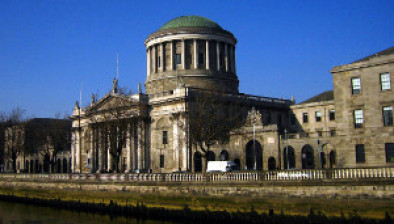NI High Court: Solicitors’ Disciplinary Tribunal decision absolving solicitor of wrongdoing reversed

Northern Ireland’s High Court has determined that a decision of the Solicitors’ Disciplinary Tribunal should be reversed and that a penalty of admonishment should be applied in respect of a solicitor.

About this case:
- Citation:[2024] NIKB 101
- Judgment:
- Court:NI High Court
- Judge:Lady Chief Justice Siobhan Keegan
Delivering judgment in November, Lady Chief Justice Siobhan Keegan opined that to the respondent’s credit, he had changed his practices but that the evidence against him had been made out to a criminal standard and accordingly, the Tribunal erred in dismissing the Law Society of Northern Ireland’s complaints against him.
Michael Egan KC, instructed by Francis Hanna & Company Solicitors, appeared for the appellant and Frank O’Donoghue KC, instructed by Fisher & Fisher Solicitors, appeared for the respondent.
Background
The appellant, the Law Society of Northern Ireland, alleged that a solicitor breached the Solicitors Practice Regulations 1987 (as amended) in respect of his manner of billing clients for fees over and above scale costs pursuant to a Contentious Business Agreement (CBA).
In particular, the appellant alleged breaches of regulation 8(1) — the duty to carry out work and conduct his practice to the highest professional standards; and/or regulation 12 — acting in a manner that as likely to or did compromise or impair his integrity, duty to act in the best interests of his client, the good repute of solicitors in general, and his proper standard of work.
The appellant appointed DWF (NI) LLP to supervise the respondent’s client bank accounts and appointed a solicitor, Mr Andress, to make further enquiries.
On 4 July 2017, the respondent commenced judicial review proceedings challenging the appellant’s interventions, including the supervision of his client accounts. On 5 January 2018, the judicial review proceedings were resolved after the appellant agreed to end the intervention and the respondent agreed to inter alia properly advise clients of their full settlement figures and any shortfall in costs.
On 19 July 2019, the Council of the appellant resolved to refer the respondent to the Solicitors’ Disciplinary Tribunal.
The Solicitors’ Disciplinary Tribunal
The Tribunal considered the affidavit evidence before it, which included evidence that Mr Andress had found that it was difficult to justify additional costs, particularly in road traffic matters which had settled prior to trial, and that the CBA would have been very difficult for a lay person to understand and appeared inter alia to “give licence to the solicitor to charge what he wishes without showing time he has spent” and that the files he reviewed did not support the respondent’s claim that all clients were clearly advised of their settlement figure and the shortfall figure.
On 12 April 2024, the Solicitors’ Disciplinary Tribunal dismissed the appellant’s allegations of misconduct against the respondent solicitor having applied the criminal standard of proof. The Tribunal found that no evidence was produced supporting an abuse of position by the respondent, and that there was nothing in the 1987 Regulations which mandated the provision of an itemised bill to clients.
The appellant appealed, alleging that the Tribunal erred:
- In finding that although the respondent’s practice of charging, communicating and obtaining payment of solicitor/client costs was not “good practice” it was nonetheless compliant with regulation 8(1) where itemised billing was not mandated;
- In finding the practice of deducting solicitor/client costs from a client’s damages before paying the damages to the client did not, or was unlikely to, compromise or impair the duty imposed by regulation 12;
- In its consideration of unwarranted extra charges to clients, by relying on the fact that no clients had complained, that they enjoyed private law remedies in respect of disputed bills and that it was not the Tribunal’s function to tax bills of costs;
- In concluding that the requirement for clients to sign a CBA did not, or was unlikely to, compromise or impair the duty imposed by regulation 12;
- In failing to consider or have regard to the relevant authorities on the correct approach when considering complaints about a solicitor’s professional conduct.
The High Court
Lady Chief Justice Siobhan Keegan set out the case on appeal, considering the allegations that in a number of cases, the respondent had inter alia obtained authority from each client for damages at a sum which was less than the figure agreed with the insurer for that client, the difference being accounted for by solicitor/client costs charged by the respondent.
The court explained that those costs were alleged to be in addition to the “scale costs” agreed to be paid by the insurer, and noted that there was no record of these clients having been advised in writing of the true damages settlement figure, the fact that there was a shortfall in costs, how that shortfall was calculated or that it was being deduced from the clients’ true damages.
The respondent submitted that his clients were aware of costs and payment of portion of same from damages awarded.
The Lady Chief Justice considered the provisions of the Solicitors (Northern Ireland) Order 1976, which provides for an appeal to the Chief Justice against any order of the Tribunal and for the making of CBA’s, and the 1987 Regulations.
The court observed at the outset that following the resolution of the judicial review, the respondent corrected his practices and so the case related to past failings only, and that there was no evidence of client complaints, dishonesty or shortfalls.
Considering Wingate & Ors v The Solicitors Regulatory Authority [2018] EWCA Civ 366 and the 1987 Regulations, the court found that the Tribunal correctly recognised failings on part of the respondent’s past practice and erred in dismissing the complaint on the basis of the appellant’s failure to make out a breach of regulation 8(1), having effectively accepted most of the appellant’s evidence.
The court also agreed with the appellant that the Tribunal erred in relying substantially on the fact that no clients had complained, that clients enjoyed private law remedies and that it was not the function of the Tribunal to tax costs, noting: “These are not factors which can excuse practice which falls below professional standards.”
The court also found inter alia that the Tribunal misquoted evidence from the appellant when it recorded that the appellant “accepted that no breach of the Regulations has occurred in the circumstances” and erred in finding that no breach of regulation 12 occurred in circumstances where there was unchallenged evidence that a crossed damages cheque was lodged into a client account.
As to the appellant’s contention that the CBA made provision for charging clients at an unspecified hourly rate and an unspecified mark-up on costs, the court found that all parties had accepted that the CBA did in fact specify the hourly rate and mark up to be applied, and dismissed that element of the appeal.
Conclusion
The Lady Chief Justice found that in light of the evidence, the charges had been made out to a criminal standard and that the Tribunal’s decision should be reversed, and indicated a provisional view that the lowest end of the penalty scale (admonishment) should apply and that there should be no order as to costs in relation to the Tribunal hearing and the appeal.
Law Society of Northern Ireland and Ian Mallon [2024] NIKB 101











